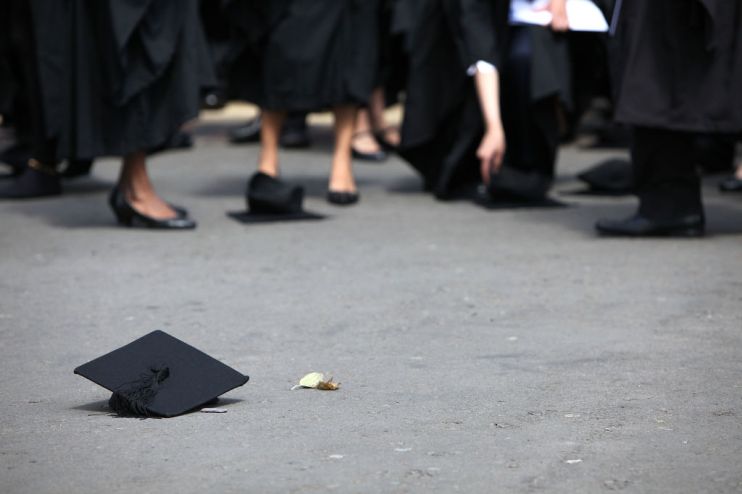Students to ‘shoulder burden’ of public finances under loan reforms

Students will be left shouldering the burden of Covid and Brexit under upcoming reforms to the loans repayment scheme, economic analysts have warned.
Analysis from London Economics and the Institute for Fiscal Studies (IFS) has revealed that low to middle income graduates will be worse off as a result of upcoming changes, which reduce the threshold to start repaying student debt to £25,000 from £27,295 and cancels the debt after 40 years instead of 30.
Investment firm AJ Bell estimates that a university leaver with £45,000 of debt paying three per cent interest, and on the average graduate starting salary of £24,000 receiving a three per cent per cent raise each year, would have repaid £47,000 but will pay £101,000 under the new scheme.
“Given the fact that they have to shoulder the burden the cost of Brexit anyway for the rest of their working lives the fact that additional costs are passed on in terms of the student loans repayment system is doubly harsh,” said Dr Gavan Conlon, a partner at London Economics, a policy and economics consultancy.
“The policy entails a direct transfer from low to middle income graduates in favour of higher earning graduates,” he continued. “That’s exactly what you don’t want to happen.”
IFS modelling has revealed that graduates in the third and fourth deciles of earners stand to lose an additional £28,000 under the new system. By contrast the highest earners will gain £25,000 on average from changes to the interest rates on student loans which will see them rise in line with inflation which will see them pay off the loan quicker.
“The open market is fundamentally weak,” Conlon added, noting that inflation is expected to surpass eight per cent this year. “Inflation is going to erode people’s income and it clearly makes things more difficult for younger people in particular.”
“I also have a lot of sympathy with the argument that the government is putting a lot of costs on the shoulders of young people including graduates and older people aren’t sufficiently paying their way given the state of public finances,” commented Nick Hillman, the director of the Higher Education Policy Institute.
Hillman noted that the students facing an increase in loan repayments will also face a national insurance tax hike from which the elderly are exempt.
“We are delivering a fairer system for students, graduates and taxpayers as well as future-proofing the student finance system,” said the Higher and Further Education Minister Michelle Donelan .
“We are freezing tuition fees and slashing interest rates for new student loan borrowers, making sure that under these terms no-one will pay back more than they have borrowed in real terms,” she added.
The Department of Education has refuted claims that students will pay more in real terms under the new system.
Read more: King’s Cross hotspot for rental growth in city as student demand pushes prices higher